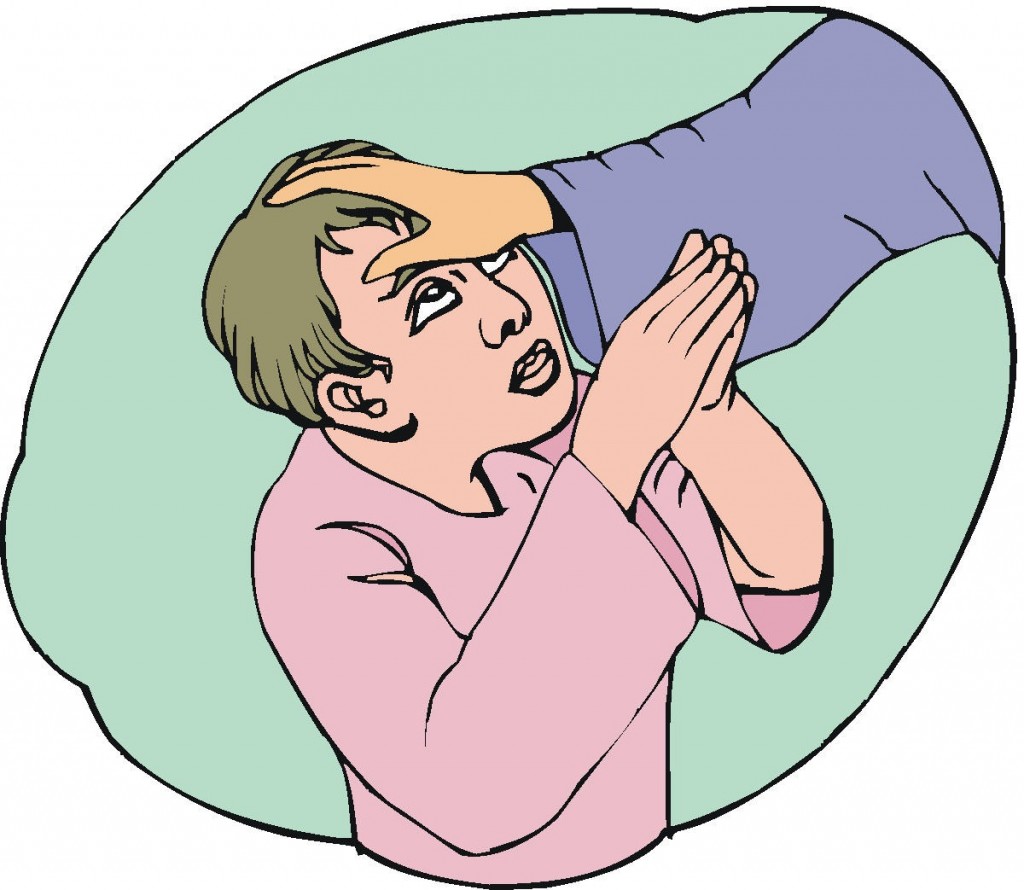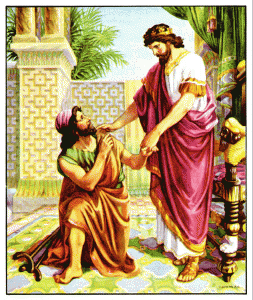Matthew 20:34, Eyes received sight…the followed him. When the Son of David has compassion on someone and touches their eyes, they receive sight and see him, and the automatic response will be to follow him. His having compassion is first preceded by the heart cry on the part of the potential recipient of Yeshua’s grace, “Have mercy on us, Son of David.” When one recognizes one’s pitiful state and desparate need, how can Yeshua not have compassion on us, touch us and heal us?
Tag Archives: Healing
Can You Heal All the People All the Time?
Can you heal all the people all the time, or just some of the people some of the time? That’s the questions we’ll answer today from the example of Yeshua’s healing activities as recorded in the Gospels.
Luke 5:17, The power [Gr. dumanis] of YHVH was present. Let’s explore the healing activities of Yeshua.The Greek word dunamis means “strength, power, ability” or as often used in the Testimony of Yeshua, “miraculous power.” This is an interesting statement pertaining to the dynamics of Yeshua’s healing activities. Did Yeshua heal all people all the time, or only when the power of Elohim was present for him to do so? This verse, at least in this case, would indicate the latter. Elsewhere, we read that Yeshua “healed many that were sick” (Mark 1:34), but not all that were sick. On other occasions, the Gospels record indicates that Yeshua did in fact heal all the sick who were brought to him (Matt 4:23–25; 9:35; Luke 6:19).
The Gospels reveal some other interesting facts about Yeshua’s healing activities that we often pass over. On at least one occasions, Yeshua prayed to heal someone and they were only partially healed. After he prayed for them the second time, they were completely healed (Mark 8:22–25).
Often Yeshua healed people after he was “moved with compassion [love and pity]” for someone who was sick (Matt 14:14; Mark 1:41; Luke 7:13–15). The Greek word for compassion, literally means “to be moved in one’s bowels,” or in the deepest areas of one’s emotions.
Some people simply touched Yeshua’s clothing as he was walking by, and the miraculous power (Gr. dunamis) of Elohim flowed from him and healed them (Matt 9:20; Mark 6:56; Luke 8:44 cp. Luke 6:19).
Elsewhere, it appears that Yeshua’s healing activities were hampered by the presence of those who ridiculed him and exhibited doubt and unbelief, which is why, on one occasion, he put the unbelievers out of the room and closed the door behind them when he raised the little girl from the dead (Mark 5:40–42).
Similarly, in his hometown of Nazereth, Yeshua “could do no mighty works there” except for healing a few sick people, “because of their [the townspeople’s] unbelief” (Mark 6:5–6; also Matt 13:58). Matthew’s account adds that the people of Nazareth were offended (literally, scandalized) by Yeshua, or that they stumbled over (or judged unfavorably, distrusted) Yeshua. Because of their low esteem for him, they lacked the faith to receive healing, which is why he healed so few people in that town.
The Bible reveals that the miracle of healing is still for today, and that not only were Yeshua’s disciples of old given the power and authority to heal the sick, but that his disciples nowadays can do the same thing (Mark 16:18; 1 Cor 12:9; Jas 5:14–16). In fact, many of us have received many miraculous healings during the course of our walk with Yeshua. Maybe I’ll tell you about some of mine someday. I’m literally a walking miracle!
Humble Yourself… Be Healed!
2 Kings 5:10–14, Go wash in the Jordan. Elisha did not cater to Naaman’s pride, which dictated that pomp and parade accompany the healing. YHVH, through his servant, dealt with Naaman’s physical sickness, as well as his sin of pride.
The Torah teaches that the sins of pride, selfishness, and robbery are root causes of the skin disorder that plagued the Syrian general. This story demonstrates that YHVH is as concerned with the root causes of an ailment as much as the ailment itself.
Many of Yeshua’s miracles demonstrated this same concern. Humility and self-negation were the cures to what ailed Naaman. Continue reading
Did Yeshua Heal Everyone All The Time?
Luke 5:17, The power [Gr. dumanis] of YHVH was present.
Let’s explore the healing activities of Yeshua. The Greek word dunamis means “strength, power, ability” or as often used in the Testimony of Yeshua, “miraculous power.” This is an interesting statement pertaining to the dynamics of Yeshua’s healing activities. Did Yeshua heal all people all the time, or only when the power of Elohim was present for him to do so? This verse, at least in this case, would indicate the latter. Elsewhere, we read that Yeshua “healed many that were sick” (Mark 1:34), but not all that were sick. On other occasions, the Gospel record implies that Yeshua did in fact heal all the sick who were brought to him (Matt 4:23–25; 9:35).
The Gospels reveal some other interesting facts about Yeshua’s healing activities that we often pass over. On at least one occasion, Yeshua prayed to heal someone and they were only partially healed. After he prayed for them the second time, they were completely healed (Mark 8:22–25). Often Yeshua healed people after he was “moved with compassion [love and pity]” for someone who was sick (Matt 14:14; Mark 1:41; Luke 7:13–15). The Greek word for compassion, literally means “to be moved in one’s bowels,” or in the deepest areas of one’s emotions. Some people simply touched Yeshua’s clothing as he was walking by, and the miraculous power (Gr. dunamis) of Elohim flowed from him and healed them (Matt 9:20; Mark 6:56; Luke 8:44).
Elsewhere, it appears that Yeshua’s healing activities were hampered by the presence of those who ridiculed him and exhibited doubt and unbelief, which is why, on one occasion, he put the unbelievers out of the room and closed the door when he raised the little girl from the dead (Mark 5:40–42). Similarly, in his hometown of Nazereth, Yeshua “could do no mighty works there” except for healing a few sick people, “because of their [the townspeople’s] unbelief” (Mark 6:5–6; also Matt 13:58). Matthew’s account adds that the people of Nazareth were offended (literally, scandalized, stumbled over, judged unfavorably, distrusted) by Yeshua. Because of their low esteem for him, they lacked the faith to receive healing, which is why he healed so few people in that town.
What can we learn from the example of Yeshua about healing the sick? Do you have some personal experiences that would correlate with what we read in the Gospels about Yeshua’s healing activities?



